![]()
Engineering or technology is all about using the power of science to make life better for people, to reduce cost, to improve comfort, to improve productivity, etc. – N. R. Narayana Murthy
Nuclear engineering tackles the splitting or combination of atomic nuclei to many different ends. These include but aren’t limited to medical applications (think radiology and radiotherapy), nuclear power, and radioactive waste disposal (crucial and complicated as it is). The field also routinely requires work in chemical engineering, electrical engineering, and can overlap with other scientific disciplines.
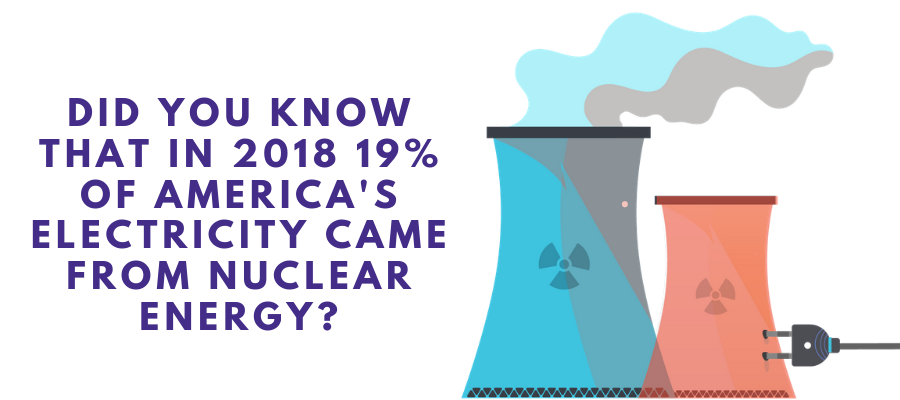
America is the world’s largest producer of nuclear power and accounts for 30% of the electricity generated by nuclear power worldwide. There are 98 currently running nuclear power reactors throughout thirty states, owned and run by 30 distinct power companies.
Nuclear energy is controversial. For thirty years, there were very few new reactor facilities built in the United States. However, the tide against nuclear power might be beginning to shift back in the other direction. For example, two new reactor units are expected to come online in 2020, or shortly after that. Since 2007 there have been 16 applications asking to build 24 new nuclear reactors. Most of those applications were shot down, but the fact they were registered in the first place is a good sign.
Our climate crisis is the combination of many factors, but a major part of it comes from the types of energy we consume. Nuclear energy has remarkably low greenhouse gas emissions, and currently produces approximately 60% of emission-free power in the country. It’s inexpensive in comparison to fossil fuels, doesn’t need them to operate, and has an extremely high fuel to power output ratio. Nuclear power plants also employ far more people than other fuel facilities do. A nuclear power plant creates 400 to 700 permanent jobs, and thousands of people work on its construction.
Nuclear energy gets a bad rap for a few reasons, notably rare reactor meltdowns in places like Chernobyl, Three Mile Island, and Fukushima. There’s also the problem of disposing of used nuclear fuel. The average nuclear power plant goes through 20 metric tons of used nuclear fuel each year. This used fuel is highly radioactive, dangerous material that is expensive and difficult to store. It also costs billions of dollars and can take 5-10 years to build a nuclear reactor facility (most nuclear sites require two plants). However, once a nuclear site is up and running the significantly low operating costs more than make up for the money spent on its construction.
Nuclear energy has to compete with traditional fossil fuels, alternate energy sources like solar and wind, and the drastic rise in natural gas production in America. However, higher energy demands, especially for energy that doesn’t impact the environment could lead to more nuclear facilities, and more jobs.
Even if jobs in electric power generation were to decline, there’s still a host of other roles nuclear engineers can fill that will likely be highly demanded. The United States Bureau of Labor Statistics expects that there will be an increase in engineering research and development, as well as scientific, management, and technical consulting services. There will also likely be a growing demand for nuclear engineers working in diagnostic imaging, nuclear medicine, and cancer treatment.
Remember, most people don’t become nuclear engineers. It’s hard work that involves significant inborn skills and training in a host of advanced mathematics and scientific disciplines. While BLS writes that a Bachelor’s degree is the entry-level education needed for these roles, many of them require a Master’s or Ph.D. (more on that later). But this hard work, the science and math aptitudes needed to succeed, and the limited supply of qualified candidates leads to high pay for qualified nuclear engineers.
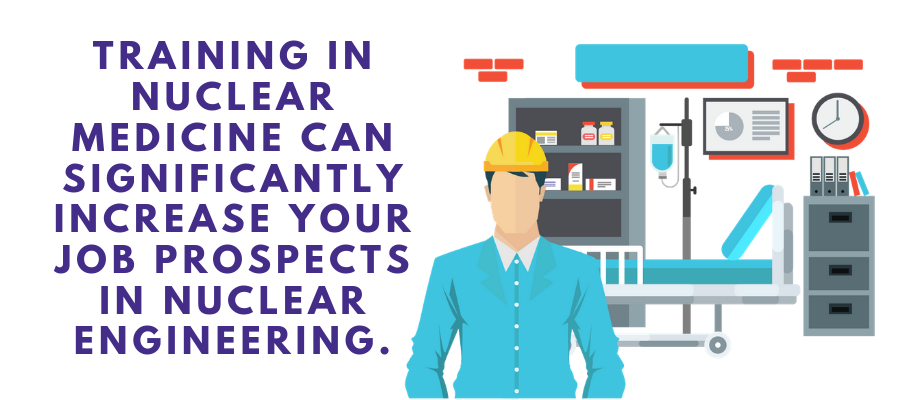
By becoming a nuclear engineer you can help combat climate change, solve complicated, critical problems, and save and improve people’s lives with your work.
In this guide we’ll explore nuclear engineering degree levels, specializations and focuses in the field, and what you can get from a nuclear engineering program. We’ll also share what we’ve done to help you in your search for a nuclear engineering degree, or other related degrees. Throughout, we’ll try to gently help you decide whether this course of study and career is right for you. Before we dive into these degrees more closely, please ask yourself the following:
- What degrees in higher education have you earned thus far? How have they prepared you to pursue nuclear engineering?
- How have you done in science and math classes over your education?
- Are you a natural at designing, implementing, and repairing devices and systems? Do you have advanced science skills and understanding? While you’ll learn a lot from what you study, you’ll need to come in with some natural talents to be successful in this field.
- What would you like to do in nuclear engineering? Would you work at a reactor, or in nuclear medicine? Radioactive containment and cleanup?
- How much can you afford to pay for a specific nuclear engineering degree?

- The amount you’ll pay depends on the school you choose and its pricing, the delivery format you choose, how long the degree takes to complete, the loans you select and their terms, potential scholarships and financial aid you might qualify for, among other factors.
- Some people can afford to pay for their degrees, but if you need to borrow money, try to take out public loans over private ones. Make sure the schools you’re looking at are accredited, affordable, and non-profit over expensive, for-profit, schools.
- How much time do you have for a nuclear engineering degree daily, weekly, and in total, before it’s over?
- Do you want to go to school full-time, part-time, on-campus, online, or in a hybrid format of online and on-campus instruction? Choosing an online program, and attending a public, state school, you can potentially save time, money and avoid having to travel.
- Are you capable of doing this work? By looking at the curriculum and topics covered and doing some basic reading and research, you can get a sense of your readiness to enter one of these programs.
- Where do you want to work and live when you graduate from a nuclear engineering program? If you want to work at a nuclear energy facility, you might want to attend a school that’s close to one.
- How can a specific nuclear engineering degree program prepare you to work in the field? How will it improve you?
- What are the specializations in nuclear engineering that you might take?
Those are a few of the questions you should ask yourself. Try to write out any others that apply specifically to you that you feel are missing. Try to answer them for specific programs you’re looking at to whittle down your options.
OK, now let’s get into what skills and abilities you’ll need to be successful in these programs, and what they will try to build in you:
Nuclear Engineering Degrees Develop and Require
Nuclear engineers are few and far between. It won’t be easy, but here’s some of what it will take:
- Adept Communication Skills: You’ll need to work extremely well with others, and communicate complicated, insular concepts and realities to people who might not have the same background. Nuclear engineers depend on others to make their designs and systems realities, so cooperation and understanding is vital.
- Advanced Attention to Detail: Nuclear engineering can be dangerous work, and something you ignore or a mistake you make can have serious consequences. You’ll have to be incredibly observant, have a great memory, and a commitment to catching small issues before they turn into large ones. You’ll also need to be able to handle immense stress and succeed despite it.
- Ability to do Advanced Math: You’ll need to make many calculations throughout your work as a nuclear engineer. Being naturally talented in advanced math like calculus will go a long way towards making your studies and career feasible.
- Innovation and Imagination: Nuclear engineers see what exists, how to improve it, and also create new systems and designs that change and challenge accepted norms. If you want to be a nuclear engineer you’ll need to be a problem solver of the highest order.
- Logic and Reasoning: It’s not all about thinking outside the box. Nuclear engineers have to know what will happen before it does and be ready to deal with it. When a new problem comes up, you’ll have to tackle it piece by piece in a way that makes sense and doesn’t set you back further.
- Ability to Thrive Under Pressure: This can’t be emphasized enough: this can be grueling, stressful work. You need to be strong-willed, calm, and fearless to make it as a nuclear engineer.
- Strong Work Ethic: If you’re going to make a career in nuclear engineering, you’ll need intense dedication. Don’t go into it lightly, and be prepared for just how much it will demand from you.
Now that we’ve covered some of what these programs require and inspire in you, let’s check out how we can help you decide if nuclear engineering is right for you, and find a degree program that will let you meet your goals and fits your needs:
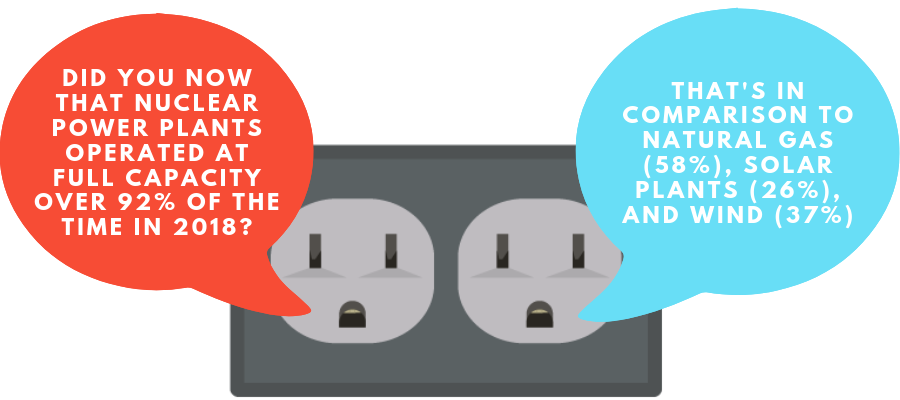
How Can We Help You Find the Right Nuclear Engineering Program for You?
At Degree Query we’ve provided extensive content on higher education. We strive to make important decisions easier by helping you decide what you want to study, where you want to study, and much more. We’ve ranked degrees, certificates, jobs, written guides like this one, and answered common questions. We’ve written about many different disciplines you can search through on our site, and we’ve even created a compare careers matrix to help you decide what you want to do.
Here’s some of the work we’ve done on nuclear and other forms of engineering.
Frequently Asked Questions and Guides
- What degree do I need to become a Nuclear Engineer?
- What Is the Demand for an Associate’s Degree in Engineering?
- What Are the Benefits of Pursuing a Degree in Engineering?
- How Advanced Does My Degree in Engineering Need to Be to Get a Good Job?
- What Is the Demand for a Graduate Degree in Engineering?
- What Are the Highest Paying Jobs in Engineering?
- What Can I Do With An Engineering Degree?
- What Is the Difference Between a Degree in Petroleum Engineering and a Degree in Nuclear Engineering?
- What Classes Will I Have to Take for a Degree in Nuclear Engineering?
- What Is the Benefit of a Nuclear Engineering Degree Vs a Nuclear Physics Degree?
Rankings
- Top 50 Degrees For Changing The World
- Top 50 Free International Universities for U.S. Students
- Top 25 Fastest Online Doctorate Degrees
- Top 10 Highest Paying Engineering Careers
- Exciting Jobs: The Top 15 Jobs for Adrenaline Seekers
- 50 Highest Paying Bachelor’s Degrees
This is just a drop in the bucket of work we’ve done to help you better understand engineering, and all the other available disciplines in higher education. If you find a program that suits your needs through our content, help yourself out by reaching out to their support staff directly through email. They’ll likely be able to answer any questions you might have, and can potentially assist you in applying and getting accepted to the program of your choice.
Now let’s get into the different levels of nuclear engineering degrees:
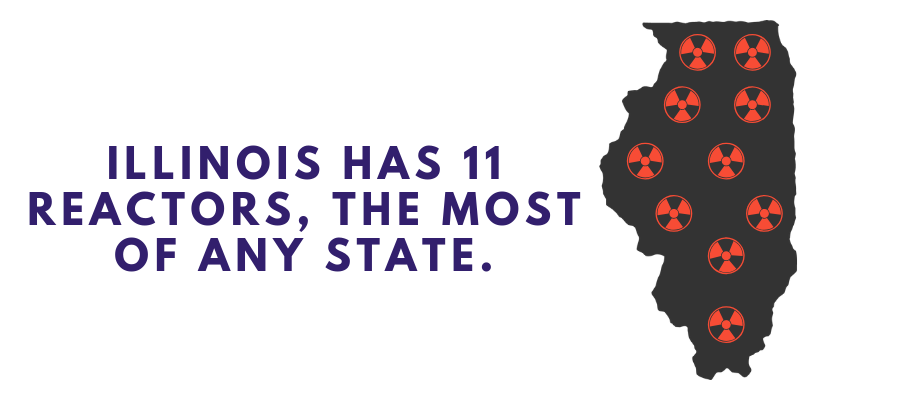
What are the Different Levels of Nuclear Engineering Degrees?
There are four main levels of nuclear engineering degrees, which are as follows:
Associates in Nuclear Engineering
There aren’t many associate degrees in nuclear engineering, but some do exist. These programs require two years to complete and might be offered by a community or junior college. By choosing that option, you can save money and earn credits towards a Bachelor’s degree in nuclear engineering or another engineering discipline. Thomas Edison University offers an associate program that will also credit you for completing the Navy Basic Nuclear Power School. That’s another route to get your feet wet in engineering. Courses you might take in these programs include Radiation Safety, Fluid Mechanics, Reactors, Thermodynamics, Nuclear Physics, and more. Graduates will be prepared to work in very low-level assistant positions, or get a Bachelor’s in the nuclear engineering or a related discipline:
Bachelors in Nuclear Engineering
These four-year programs give you the entry-level education needed to become a nuclear engineer. You’ll begin with two years of foundational courses in chemistry, engineering, advanced mathematics, and physics. You’ll then move on to nuclear engineering-specific courses like Reactor Theory, Two-phase Flow, Radiation Protection, Reactor Design, and more. You’ll have to do a significant amount of lab work, and likely complete a senior design project or research project.
Masters in Nuclear Engineering
Here you’ll delve into one or several specific areas of nuclear engineering, like industrial or medical radiation. You’ll also explore radiation detection, shield, thermal hydraulics in reactors, and nuclear engineering safety. You’ll work daily to learn how to make nuclear reactors more efficient and incident-free. Students will also have utility over the courses they take that support research projects of their choice. You might deal with ethical considerations, and will have to prove your ability to deal with common problems in the practical work you do in these programs. Masters programs often culminate in a thesis and its defense, or a final project showcasing what you’ve learned in the program.
Doctorates in Nuclear Engineering
These programs often prepare graduates for top-level research and teaching careers. They can take approximately five years to complete, depending on the schedule you choose and the funding you receive. You’ll likely complete five to six core courses and work on a comprehensive research project of your choosing. Courses you might take include Reactor Safety Analysis, Health Physics, Nuclear Instrumentation, Reactor Design, Management of Nuclear Waste, Regulation, among other options. In addition to being prepared for top research and teaching positions you can also work in jobs like Nuclear Power Systems Designer, Service Company Consultant, Medical Equipment Designer, and Nuclear Waste Manager.
In addition to these different levels there are specializations within nuclear engineering that different degree programs can get you ready to work in. Let’s take a quick look:
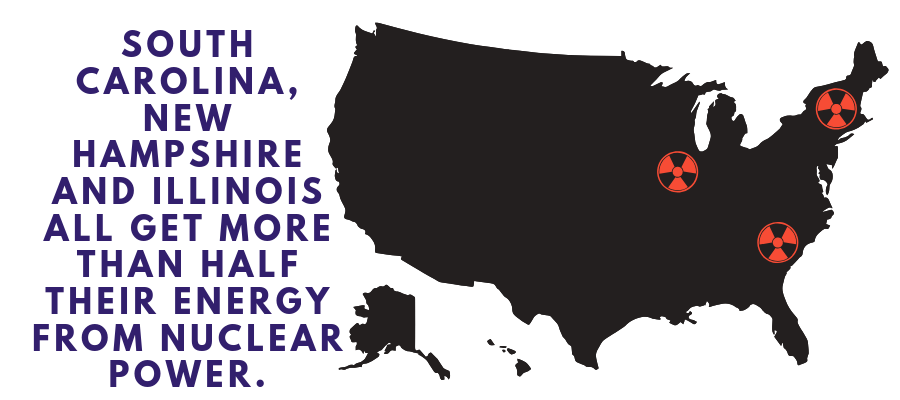
What are the Different Specializations in Nuclear Engineering?
Simulation and Modeling
Nuclear reactors aren’t built and operated without an array of testing to make sure they’re going to function correctly. In this specialization, you’ll often work to measure and understand neutron and gamma data to ensure safety and efficiency. You’ll also be involved in radiation shielding, overall nuclear safety, and likely research neutron transport and reactor neutronics.
Nuclear Fusion and Plasma Science
Nuclear engineers in this specialty work with and research fusion reactors and plasma processing. They might be work on medical applications, like researching nanoscale drug systems or create new ways to store nuclear waste, among other roles in the field.
Medical Instrumentation
There’s significant growth expected in this specialization. Nuclear engineers in this area will learn to build, test, research, and design medical devices and instruments. PET and MRI scans are well-known forms of medical radiation you might have experienced. Today nuclear engineers are also making increasing use of radioactive tracers (also known as radiopharmaceuticals) that are used to diagnose patients.
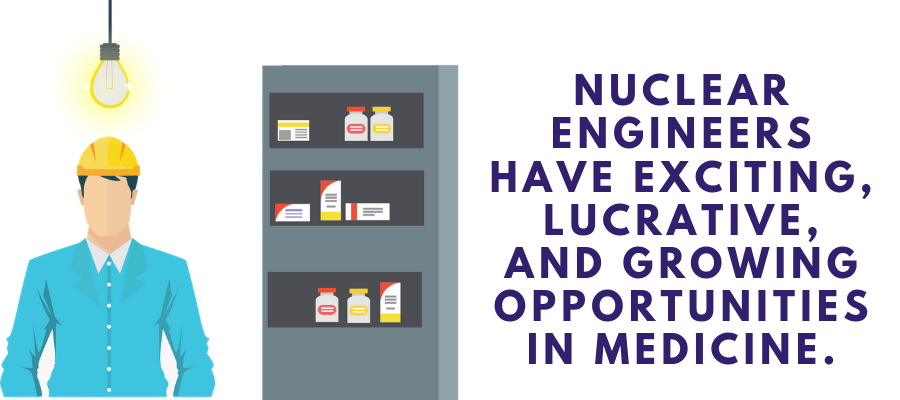
Thermal and Fluids Sciences
This is also related to medical nuclear engineering or can be. Thermal and fluids sciences are versatile areas that deal with heat transfer, combustion, thermodynamics, fluid mechanics, and more. You’ll do a significant amount of experimentation and use advanced computational methods in this specialization. You might also create biomedical devices for bacterial disinfection, brain cooling, and that can treat cancer.
Radiation Detection and Measurement
Here you’ll work to measure danger and create safety measures. You’ll learn advanced mathematics (even for a nuclear engineer), to improve signal processing and more. You’ll also learn how to examine materials in a non-destructive way, and will likely use radiation imaging throughout your degree and career.
These are some of the specializations in nuclear engineering. Let’s look at potential earnings and job growth in the field as we wrap up the guide:
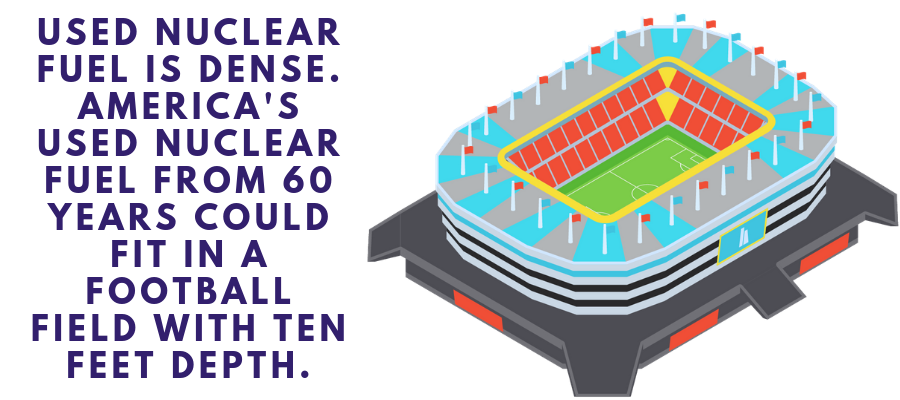
Nuclear Engineering Degrees in Conclusion
We hope you’ve found this guide interesting and useful.
Nuclear engineering isn’t something you enter casually. It’s exceptionally challenging, dangerous, and comes with high stakes financially and for our environment. You have to be exceptional at math, science, and problem-solving.
If you’re up to that you have a chance to do meaningful, consequential work that has potential to change the world in a positive way.
You’ll also be compensated appropriately:
BLS found the 2018 median pay for nuclear engineers was $107,600 annually. There were 17,700 of these roles in 2016, and the typical entry-level education for these positions was a Bachelor’s degree. They also predicted a 4% growth between 2016-26, translating to 700 new jobs.
Higher salaries in this field corollated with engineers working in Engineering services, Scientific research and development services, and electric power generation. Nuclear engineers are on average among the highest paid engineers working today.
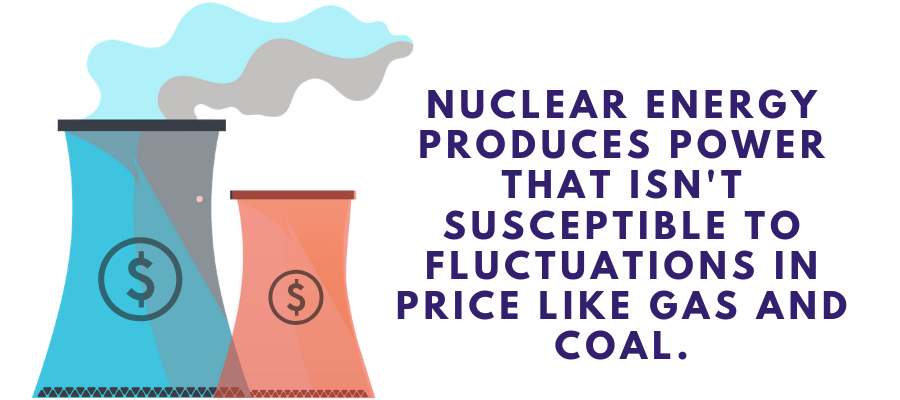
Deeply consider if nuclear engineering is right for you. If you want to explore other options, they’re a click away under our degree programs tab. Whenever you find a program that feels like a match, don’t forget to reach out to the school that provides it for more information. You never know what kind of help you might receive in terms of financial aid, scholarships, refining your application, and learning whether their degree is right for you.
Good luck in your education and career!
For Further Reading:
What Are the 5 Best Careers in Environmental Science?
